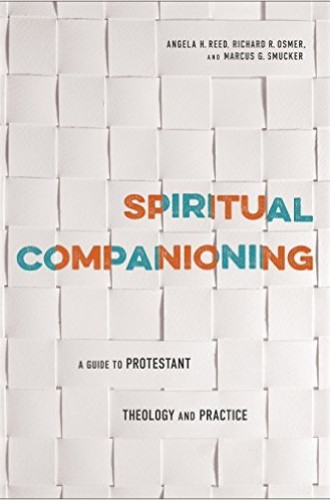Spiritual Companioning, by Angela H. Reed, Richard R. Osmer, and Marcus G. Smucker
Marcus Smucker begins this book by telling about his burnout as an inner-city pastor. After 12 years of ministry, he felt emotionally dry and spiritually empty. Though he continued to pray and read scripture, his passion for ministry had died, and preaching “was becoming a colossal pain.”
Spiritual and vocational rebirth began when Smucker took a private, multiday retreat at a cabin in the mountains. In solitude he rested, hiked, meditated with scripture, wrote in a journal, gazed at creation, and fasted. After three days he felt God’s presence not just around him but also in him. The retreat helped him realize that he needed to change his work habits and find ways to keep opening himself deliberately to God. After returning to the church, he began to offer others in his congregation some of the same spiritual practices that had refreshed him. In time he found his role in the congregation gradually expanding into that of a spiritual companion. It renewed his pastoral vocation.
Although not every pastor flirts with burnout, many pastors live with nagging questions they’d rather not answer: What if people in our church are mostly going through the motions of religiosity and live with little vital sense of God’s presence and power? As we work to run the church smoothly, what if people are not finding the deep fellowship with God and others they crave? Could we be missing what congregational life is supposed to achieve: growth into the image of Christ?





